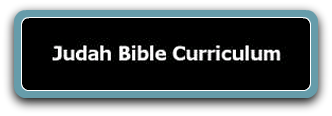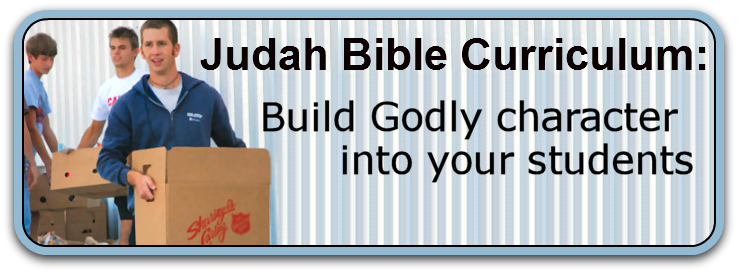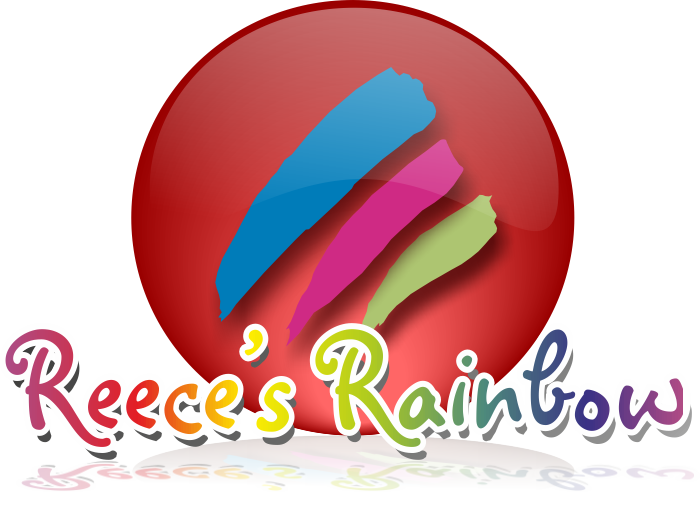Now we are working on Judah Bible Curriculum, an on-line curriculum.

My Dad would have really liked this one.
From their website:
The Judah Bible Curriculum is a "Principle Approach" ( Principle Approach refers to a philosophy of education whose content and methods are designed to build character in teacher and student capable of sustaining liberty) Bible curriculum whose distinctives are the following:
- The BIBLE is the textbook. The student studies and learns the Bible.
- The student learns God's purpose in history, studying the hand of God in the lives of men and nations through the Bible.
- The student develops his reasoning ability, helping him to apply Biblical principles personally.
- The curriculum helps you shift from rote learning to Biblical reasoning.
- The student learns the relationship between the sovereignty of God and the personal responsibility of the individual.
- The student learns the relationship between individual character and national liberty
I have never heard of the Principle Approach before, so all of this was new to me.
Here are some things that the author wants you to keep in mind as you use this curriculum:
1. The hand of God in History
2. The hand of God in the life of the individual
3. Christian self-government
4. Individual Christian character and national liberty
So, how did it work at our house?
It was good....and, not so good.
I love that it uses the Bible as the text.
But, on the down side, it was a lot of work for me.
To get me started, I got a 100-page K-12 Manual download as well as 8 hours of audio lessons in mp3 format for me to listen to. So, I read the manual and then logged onto their website and listened to some audio recordings that you are supposed to listen to before jumping into the curriculum. (I did not listen to all 8 hours of lessons.)
Around here, it is really hard for me to listen to....or watch anything uninterrupted. So, that in itself was a challenge.
I think the basic point was to teach me, as a student, first....so, then I could turn around and teach my kids. But, it was just harder than I thought it would be.....or maybe I should say, harder than I needed it to be.....right now.
I did pick up some interesting things from the audio training:
The job of the Home is to train your character.
The job of your Church is to train your conscience.
The job of the Government is to protect individual liberty and property.
This course focuses on 5 themes and what is happening governmentally throughout the Bible.
The five themes are:
1. Creation
2. Redemption
3. Kingdom of Israel
4. Kingdom of God
5. Early Church
The goal of this type of curriculum is to help students learn how to extract material from the text. (A good thing for any subject, in my opinion)
Do not ask what the author wants me to do, but what does God want me to do.
Again, I think this was designed so, first, the teacher learns how to dig deep and delve into the Bible....and then, in theory, inspires that same goal of digging deep and delving into the Bible in my children.
Click here if you want to know Judah Bible Curriculum's Statement of Faith.
Here is a video clip explaining what they call the "American Philosphy of Government" used in this curriculum. Based on the idea that there are three philosophies of government. God is sovereign, the State is sovereign, and the individual is sovereign. This is also based on the idea that we all have our own philosphy of government and that is what guides our education....one of of the three directions.....God is sovereign.....the State is sovereign.....or the individual is sovereign......which then forms our ultimate character.

Make sense?
I think it will after you watch this video.
This curriculum also provides basic worksheets called Key Sheets that outlines a few "key"....
1. Events
2. People
3. Institutions
4. Documents
.....in the different passages of study......for each theme.
Each "key" is studied with a view towards identifying the hand of God, the character of God, and the place of that key in His purpose for history.
You focus on one key each week starting with the Bible. Then, you expand that and use commentaries, concordances, Bible handbooks, Bible dictionaries, maps, timelines, encyclopedia, and other reference material you may find.
You also include memory verses in your lessons. For littler kids, you can include coloring pages and simpler activities. The students (and the teacher) also keep a Bible notebook of information that they are studying, notes to themselves, memory verses, etc.
From their website:
The purpose of the notebook is to produce something of value and develop character qualities of creativity, productivity, excellence and organization, to be a producer not a consumer. The purpose is production, not paper storage.
There is a Scope and Sequence where they have spelled out how to divide the studies up in different grades.

Okay, here is the part where I make a confession.
I like a curriculum where I don't necessarily have to think.....or put a lot of prep time into preparing lessons.
There, I said it.
I know.
When we are talking about Bible, it seems kind of lazy for me to complain about having to do work so we can study the Bible.
But, that is sort of what I am doing......complaining.....well, maybe not complaining. It is probably more like whining.
I said right away that I know my Dad would have loved this curriculum. It was the kind of Bible study he did. Deep. Well thought out. Using all sorts of other historical information to bring meaning and understanding to the scriptures.
He spent a lot of time studying the Bible. A lot. He had notes, cross references, and lines on probably every single page of his Bible.
So, while I loved the idea of this curriculum in theory. It didn't work so much in my everyday life.....maybe because we have 6 kids. I think it would have been easier to manage with a smaller household.
But, most likely it just didn't work for us because of selfish reasons. I didn't take the time to delve into it like I should have so the kids and I could have dug through the Bible bit by bit together. We just sort of scratched the surface and I felt like I was missing the point.
I also think that I had problems doing that because we are in the middle of a school year. My plan, right now, is that I will take some time this summer and see if I can't get a better handle on Judah Bible Curriculum philosophy and approach, and decide how I can lay it out for our family before our structured classes begin next year.
I think we may have a shot at it succeeding that way.
So, if I haven't scared you off and you are interested in checking this out, here are the prices:
A hard copy is available for $69.00, plus 5.00 shipping and handling Total $74.00.
For that price, you get:
1) Judah Bible Curriculum K-12 Manual;
2) Elementary Notebook Ideas booklet;
3) Eight-lecture Teacher Training Seminar on CDs.
(I think I may have done better with the actual hard copy. There is something about pouring through a manual that you can't get pouring over one on your screen.)
Or, you can get on-line access/ebook: Total $44.00.
For that price, you get:
1) Judah Bible Curriculum K-12 Manual, e-book format to download;
2) Elementary Notebook Ideas booklet to view online or download;
3) Eight-lecture Teacher Training Seminar. listen online or download.
I think this curriculum would work well with a parent who has the time to follow through with all the prep material before jumping into it. I haven't given up yet. Like I said, I love the idea of this curriculum, but felt unprepared and like I was missing things because of the way I sort of shoved it into the middle of our school plans.
Go see what other TOS reviewers thought of the Judah Bible Curriculum.

Disclaimer: I received on-line access to the audio lessons, and the downloadable Judah Bible Curriculum manual for free in exchange for an honest review.

















0 comments:
Post a Comment